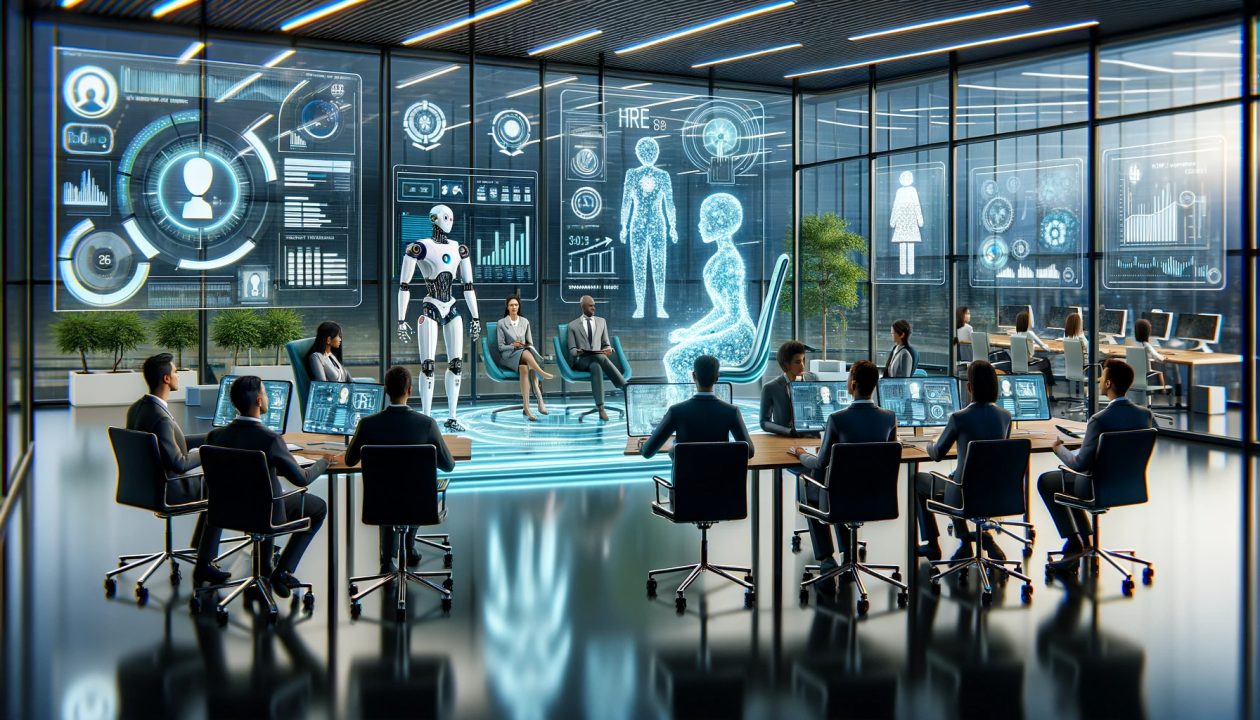The world of Human Resources (HR) is evolving rapidly, with technology playing an ever-increasing role in streamlining processes, enhancing employee experiences, and driving business success. Among these transformative technologies, Generative AI stands out as a game-changer. This blog delves into how generative AI is reshaping HR, providing businesses with innovative tools to meet modern challenges and unlock new opportunities.
What is Generative AI?
Generative AI refers to a class of artificial intelligence models capable of producing human-like text, images, audio, and more. Unlike traditional AI that processes data to predict outcomes, generative AI creates entirely new content based on patterns and knowledge it has learned.
In HR, generative AI in HR solution can generate job descriptions, craft personalized onboarding materials, automate candidate communications, and even design tailored employee training modules. This capability makes it an invaluable asset for organizations looking to enhance their HR strategies.
Key Applications of Generative AI in HR
1. Recruitment and Talent Acquisition
Recruitment often involves repetitive tasks that consume time and resources. Generative AI can:
- Write Engaging Job Descriptions: AI tools like ChatGPT can craft compelling job postings that attract the right candidates while being inclusive and free of bias.
- Automate Candidate Communication: From sending acknowledgment emails to scheduling interviews, generative AI streamlines communication, enhancing the candidate experience.
- Resume Screening and Summarization: Generative AI can analyze and summarize resumes, highlighting key skills and qualifications to help recruiters focus on the best candidates.
2. Personalized Employee Onboarding
First impressions matter. Generative AI can revolutionize onboarding by:
- Creating customized onboarding documents tailored to individual roles.
- Developing interactive guides or chatbots that address new employees' questions in real-time.
- Automating the creation of welcome messages, training schedules, and compliance checklists.
3. Learning and Development
Continuous learning is vital for business success. Generative AI can:
- Design personalized training modules based on employee roles, skill gaps, and career aspirations.
- Generate real-time feedback on training assessments.
- Create engaging learning materials, such as quizzes, presentations, and even simulated scenarios for practice.
4. Employee Engagement and Retention
Maintaining a satisfied and motivated workforce is key to retention. Generative AI supports this by:
- Creating personalized newsletters and updates to keep employees informed.
- Analyzing feedback from surveys and crafting actionable recommendations.
- Powering AI-driven wellness programs, offering tailored suggestions for mental and physical health.
5. Performance Management
Performance evaluations can be enhanced with AI by:
- Automating performance review summaries based on qualitative and quantitative data.
- Suggesting development plans for employees using insights drawn from past evaluations.
- Generating predictive models to identify high-performing talent for promotions or leadership roles.
Benefits of Using Generative AI in HR
Adopting generative AI in HR solutions brings several advantages:
- Time Efficiency: Automating repetitive tasks frees up HR professionals to focus on strategic initiatives.
- Enhanced Decision-Making: AI provides data-driven insights to make more informed decisions about hiring, training, and retention.
- Scalability: Generative AI allows HR departments to scale their efforts without increasing costs, especially in large organizations with diverse needs.
- Improved Employee Experience: Personalized communication and resources make employees feel valued and supported.
- Cost Savings: Automation reduces the need for manual intervention, saving operational costs in the long run.
Challenges and Considerations
While generative AI offers transformative benefits, it's essential to address potential challenges:
- Bias in AI Models: If AI is trained on biased data, it may perpetuate inequities in hiring or evaluation.
- Privacy Concerns: Generative AI must adhere to data privacy regulations, ensuring sensitive employee data is protected.
- Change Management: Organizations must manage the transition carefully, training HR teams to work alongside AI tools effectively.
Getting Started with Generative AI in HR
To integrate generative AI into your HR strategy:
- Assess Your Needs: Identify the HR processes that can benefit most from automation and AI enhancement.
- Choose the Right Tools: Explore AI platforms tailored to HR, such as ChatGPT for communication or dedicated recruitment AI tools.
- Start Small: Begin with pilot projects, like automating job descriptions or candidate communication, before scaling up.
- Ensure Ethical Use: Regularly audit AI models to prevent bias and maintain compliance with labor laws and data protection standards.
- Train Your Team: Equip HR professionals with the skills and knowledge needed to work effectively with AI technologies.
The Future of Generative AI in HR
As generative AI continues to advance, its potential applications in HR are limitless. From predictive analytics for workforce planning to virtual reality training simulations, the future of HR is poised to become even more dynamic and personalized. Businesses that embrace these technologies early will gain a competitive edge, enhancing their ability to attract, retain, and nurture top talent.
Conclusion
Generative AI in HR solution by automating mundane tasks, providing personalized employee experiences, and offering powerful insights to drive business success. By understanding its applications, benefits, and challenges, organizations can harness the full potential of this technology to build a thriving workforce and achieve their goals.
The future of HR is here, and it's powered by generative AI. Will your business lead the charge?







